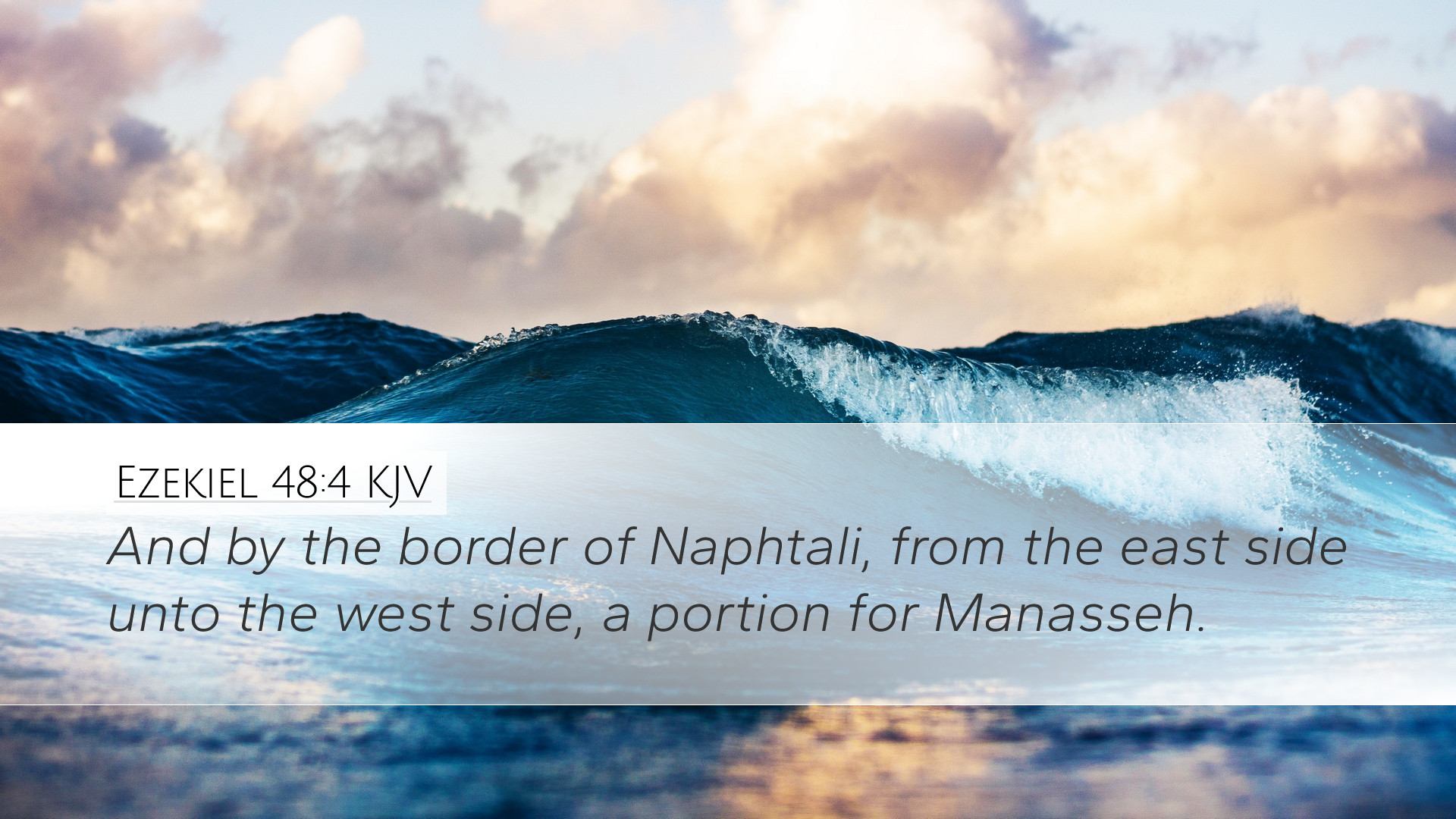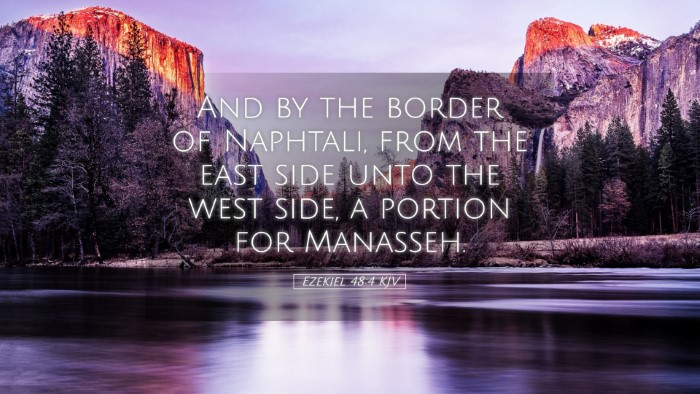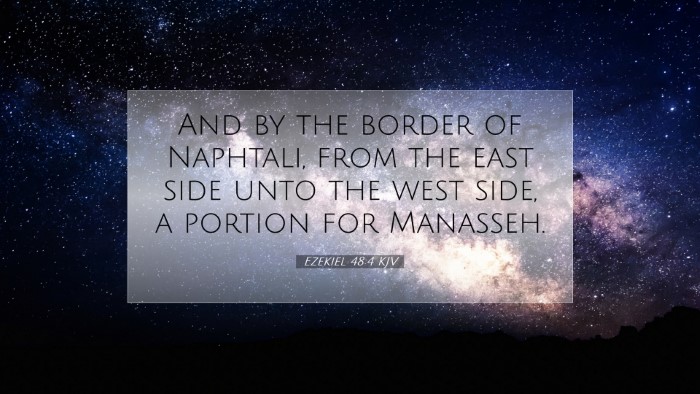Bible Commentary on Ezekiel 48:4
Bible Verse: Ezekiel 48:4 - "And by the border of Judah, from the east side unto the west side, shall be the offering which ye shall offer of five and twenty thousand in length, and ten thousand in breadth."
Introduction
The verse Ezekiel 48:4 captures a pivotal moment in the prophetic vision of the restoration of Israel. This passage is part of Ezekiel's prophetic blueprint of the future temple and the land distribution among the tribes of Israel. As we explore this verse, insights drawn from public domain commentaries will enrich our understanding and provide valuable implications for theology, pastoral ministry, and personal application.
Contextual Overview
Ezekiel, a priest and prophet during the Babylonian exile, is known for his elaborate visions concerning the glory of God and the eventual restoration of Israel. This particular chapter describes the division of the land among the tribes, which reflects God's promise of restoration. The emphasis is not merely on the geographical allocation but on the spiritual significance of the land being reallocated to the rightful heirs of God's covenant.
Insight from Commentaries
-
Matthew Henry's Commentary
Henry emphasizes the importance of acknowledging God's sovereignty in the division of the land. He notes that the dimensions given in this verse denote a section of land designated for the priests and the sanctuary, which is vital for the worship life of the Israelites. The measurement of 25,000 by 10,000 signifies a deliberate provisioning for the priestly order and the holiness associated with the sanctuary. The allocation also serves to remind the people of their covenant relationship with the Lord, as the land is not merely for physical possession but also for the preservation of spiritual identity.
-
Albert Barnes' Notes on the Bible
Barnes elaborates on the specific measurements given in the text, indicating that they represent a defined space for the priests, emphasizing order within the worship and societal structure. The mentioned borders highlight a clear distinction in the land’s division, suggesting that God establishes boundaries not only physically but also spiritually. This careful demarcation serves as a metaphor for the need for believers today to recognize their spiritual boundaries under God’s commandment. Barnes points out that this section provided for the priests is also to promote holiness in the nation, as it cultivates a society where religious duties are emphasized and sacred space is revered.
-
Adam Clarke's Commentary
Clarke provides a detailed analysis of the geographical and historical implications of this land division. He articulates that the allotment underscores God's faithfulness to His people and His continuous provision throughout their history. Clarke also highlights that the land is representative of God's promises fulfilled, echoing the significance of the land throughout biblical history. He notes that the offering signifies both a physical and spiritual sacrifice, as it requires commitment from the people to support the priests and maintain the sanctity of the worship space. The defined space, therefore, becomes symbolic of God’s dwelling among His people and the sacredness attached to communion with Him.
Theological Implications
The theological implications of this verse are profound, touching on themes of divine sovereignty, holiness, and community. The allocation of land emphasizes God’s control over creation and His ability to restore His people. The specific dimensions not only serve practical purposes but also reflect spiritual truths, emphasizing the importance of worship and the role of mediators in the relationship between God and His people.
Moreover, the notion of offering extends beyond the physical land to the spiritual life of the community. It signifies the necessity of sacrifice, stewardship, and the need for God's people to engage actively in worship. For pastors, this highlights considerable areas of exhortation in the life of the church regarding the significance of setting aside space for worship and the need for community engagement in these holy callings.
Pastoral Applications
This verse provides several applications for pastoral ministry:
- Encouragement of Community Worship: Pastors are reminded of the importance of facilitating environments for communal worship, reminiscent of the priests' central role within the community.
- Teaching about Sacrifice: This passage serves as a reminder to educate congregations about the necessity of sacrifice in their spiritual lives, echoing the call to ensure their lives reflect a dedication to God.
- Emphasizing Holiness: The call to holiness, represented by the designated land for priests, underscores the pastoral responsibility to preach and teach about the importance of a holy life, both personally and corporately.
Conclusion
Ezekiel 48:4 provides a profound insight into the nature of God’s covenant with His people, the structure of worship, and the importance of the priestly role in maintaining holiness among the community. By examining this verse through the lens of historical context and theological implications, pastors, theologians, and scholars can glean valuable lessons about stewardship, community, and the ongoing need for sanctity within the life of the church.


